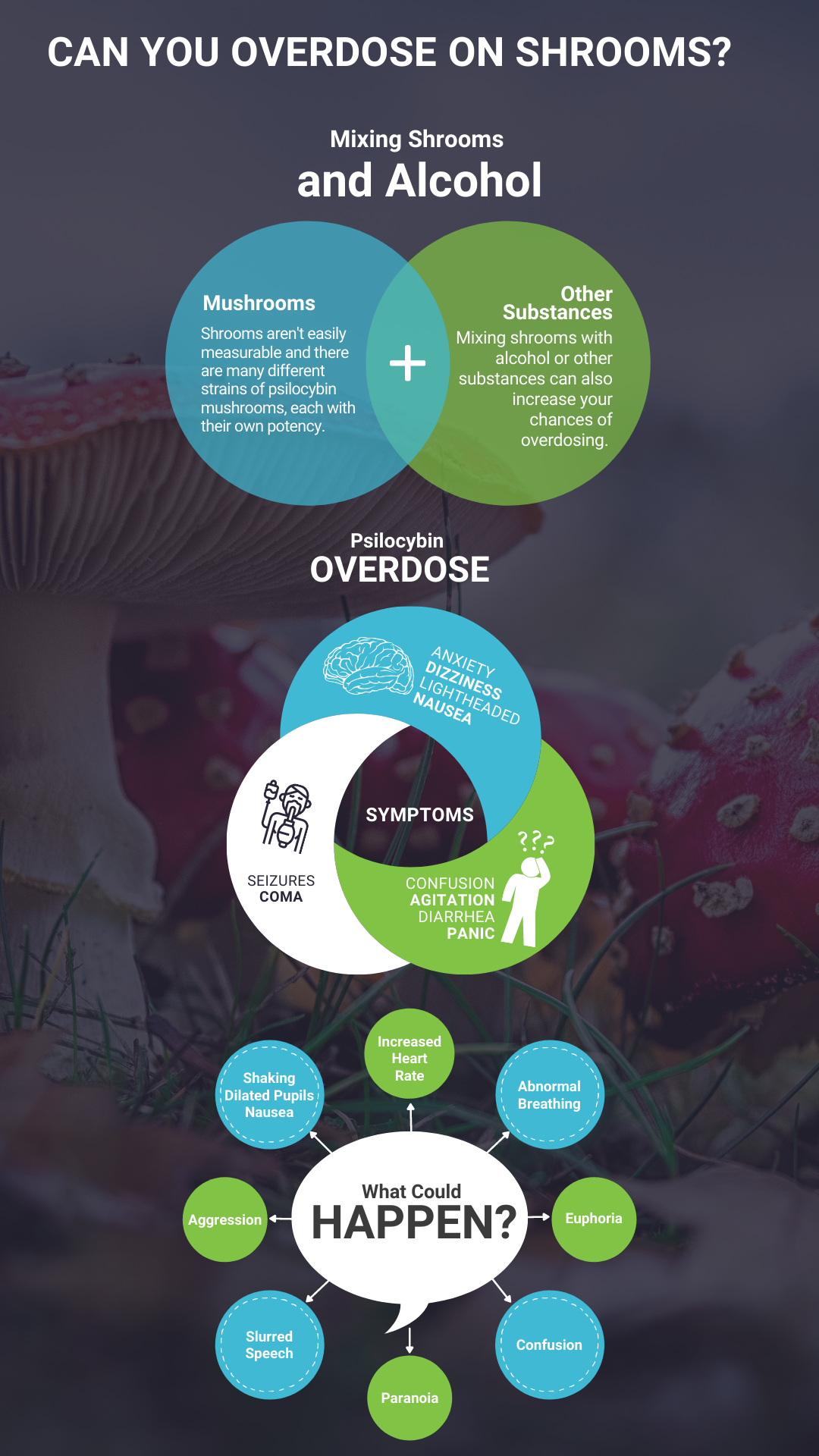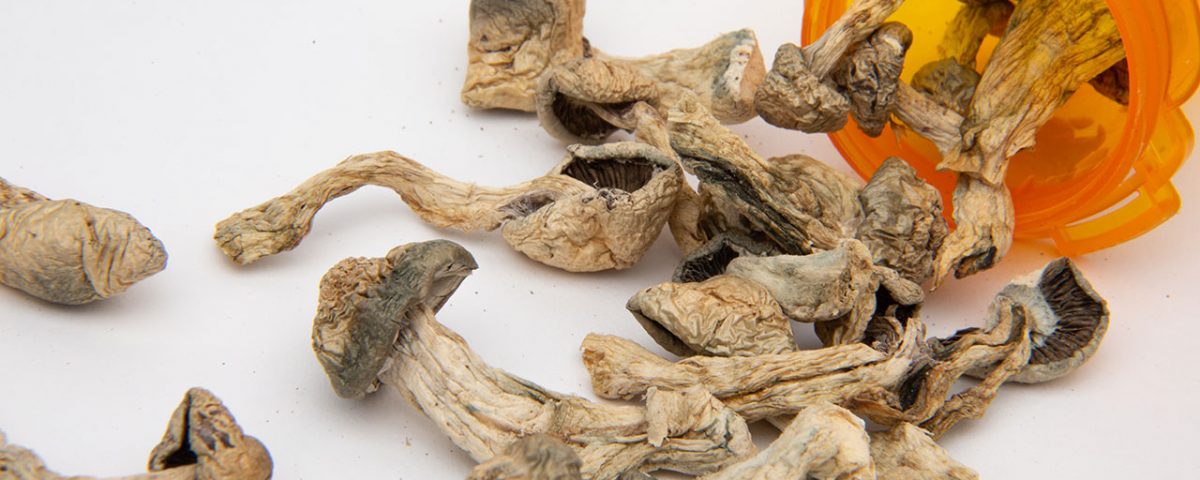Commonly known as shrooms or magic mushrooms, psilocybin mushrooms are naturally occurring psychoactive and hallucinogenic substances that produce a mind-altering high.
Psilocybin is one of the most well-known psychedelics in the nation. It’s currently classified as a Schedule I drug, meaning it has a high potential for abuse with no accepted medical use. However, when it comes to using these drugs, it’s important to ask, “Can you overdose on shrooms?” Banyan Treatment Centers Texas shares the answer and much more to know before trying these drugs.
What Happens When You Take Mushrooms?
As hallucinogens, magic mushrooms can alter your perception of sight, sound, touch, taste, and smell. They can produce hallucinations or the feelings or sensations of things that aren’t real.
While many people claim they take shrooms for a peaceful high, there are also reports of bad side effects of mushrooms, like anxiety, frightening hallucinations, paranoia, and confusion. The co-occurrence of these side effects is often referred to as a bad trip.
For thousands of years, mushrooms have been used for both spiritual and medical purposes among indigenous people in the US and Europe. They have a long history of being associated with spiritual rituals and self-discovery.
Many people believe that naturally occurring drugs like psilocybin, cannabis, and mescaline are sacred herbs that allow people to attain enhanced spiritual states. Others use shrooms to experience euphoria and a distorted sense of time.
Short-term effects of psilocybin mushrooms:
- Increased heart rate and blood pressure
- Abnormal and rapid breathing
- Euphoria
- Sense of relaxation and well-being
- Confusion
- Disorientation
- Paranoia
- Slurred speech
- Loss of muscle control
- Impaired judgment
- Reduced coordination
- Irrational and violent behavior
- Distorted perception of reality
- Aggression
- Distorted sense of time and space
- Nausea and loss of appetite
- Chills and flushing
- Shaking
- Distorted body image (a floating sensation or out-of-body experience)
- Dilated pupils
- Seeing things that aren't real
The effects of shrooms kick in after about 20 to 40 minutes and can last up to 6 hours, which is the same amount of time it takes for the body to metabolize psilocin.1 However, while a mushroom high may seem promising, researchers advise against psilocybin because it can be difficult to measure the dose you’re taking, side effects can be unpredictable, and also because the purity of the drug is often unknown.
Can You Overdose on Psilocybin?
An overdose refers to taking more of a substance than the body can handle in one moment. Because drug overdoses are usually reported in cases where people took cocaine, meth, heroin, or prescription pills, many hallucinogen users wonder, “Can you overdose on shrooms?”
The answer is yes; however, a magic mushroom overdose isn’t usually fatal. Common symptoms of a psilocybin overdose include:
- Anxiety
- Lightheadedness
- Dizziness
- Nausea and/or vomiting
- Excessive sweating
- Flushing of the skin
- Delusional thinking
- Confusion
- Slowed perception of time
- Agitation
- Diarrhea
- Muscle weakness
- Panic or paranoia
- Psychosis
- Seizures
- Coma
It’s also important to note that it’s not uncommon for poisonous or laced mushrooms to be misidentified as psychedelic shrooms. Consuming mushrooms that have been laced with other potent drugs can increase the individual’s chances of overdosing as well as dying. While many claims support the safety of these drugs, the truth is that any form of substance abuse can have drastic consequences. If you or someone you care about is struggling with drug or alcohol abuse, our rehab in Texas can help.
How Many Shrooms Is Too Much?
Considering shrooms aren’t sold or used as tablets or other easily measurable formulations, it can be difficult for users to know exactly how much psilocybin they’re consuming. This is especially true of organic shrooms.
There are also many different strains of psilocybin mushrooms, each of which has its own level of potency. Psilocybe cubensis is the most commonly used strain of magic mushrooms and happens to be fairly potent.
Normally, one dose of psilocybe cubensis is approximately 3.5 grams or ⅛ of an ounce. If we were to apply this dosage to all strains of mushrooms, then we could say that taking double or more than 3.5 grams of shrooms can increase your chances of experiencing OD on shrooms. Taking shrooms with alcohol or other substances can also increase your chances of overdosing, an unfortunately common habit among psychedelic drug users.
Shroom Overdose Recovery
Recovery after overdose is a delicate and challenging process. When someone overdoses on psychedelic mushrooms, it's important to handle the situation carefully and get help right away. The healing process often comprises both physical and psychological support to ensure the well-being of the person.
The person's physical health should come first in the moments following a shroom overdose. The breathing will be stabilized, vital signs will be tracked, and any urgent difficulties will be treated. Depending on the extent of the overdose, psychedelic compound-blocking medicine may be given as part of the treatment.
After the person's physical state has stabilized, attention turns to psychological healing. The severe hallucinations, anxiety, and panic that can result from a shroom overdose can be traumatic for the person using it. Therapists and counselors, among other mental health specialists, are crucial in assisting the patient in processing and making meaning of their experiences. To address any mental suffering and encourage recovery, strategies such as talk therapy, cognitive-behavioral therapy, and trauma-focused therapy may be used.
Healthy coping techniques and lifestyle adjustments must also be incorporated into the recovery process after a mushroom overdose. This can entail adopting a balanced diet, exercising frequently, and engaging in stress-reduction practices like mindfulness or meditation. Individuals may also gain from joining support groups or looking for peer assistance to get in touch with people who have experienced comparable things.
Help for Drug Abuse
Not only can you OD on shrooms, but you may also experience long-term side effects like decreased motivation, depression, impaired memory and concentration, and a disorder called hallucinogen persisting perception disorder, which is characterized by flashbacks of trips or highs weeks, months, or even years after the drug use.
Banyan offers drug and alcohol treatment in Texas to help people with substance use disorders physically and mentally recover from their conditions while learning how to sustain their sobriety long-term. We even offer family therapy to assist our patient’s loved ones in their recovery from the impact of addiction, as well.
To learn how our options for Texas addiction treatment can help you get and stay sober, call Banyan today at 888-280-4763.
Related Reading:
Source:

Can You Overdose On Shrooms?








